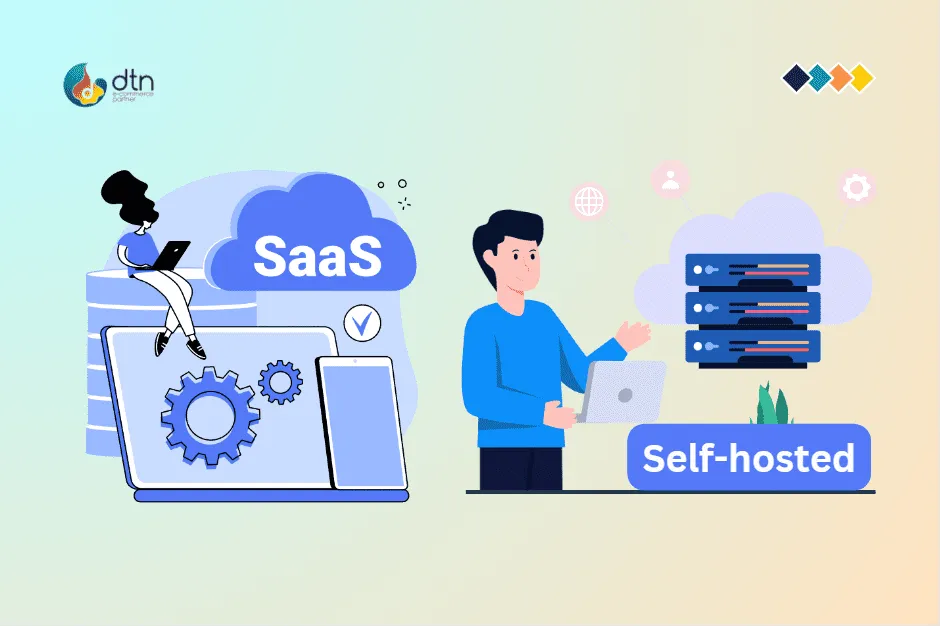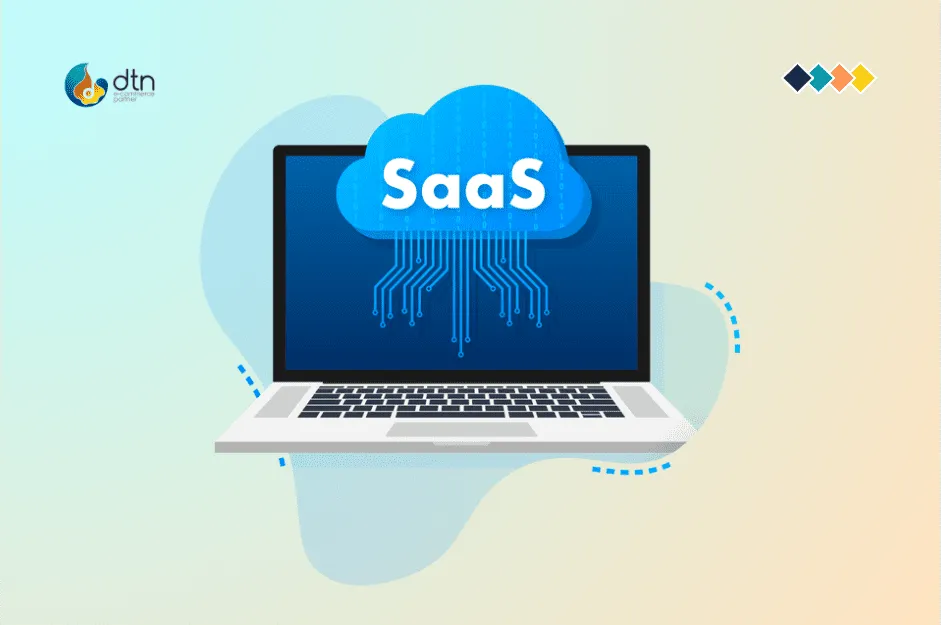Choosing the right platform is a critical decision that can significantly impact your online business’s success. When it comes to e-commerce solutions, there are two primary options: Software as a Service – SaaS vs Self-Hosted e-commerce platforms. In this blog, we’ll delve into the differences between these two types of e-commerce solutions, helping you make an informed decision on which one suits your needs best.
E-commerce Solution Types
Before we dive into the comparison, let’s briefly define the two primary types of e-commerce solutions:
- SaaS E-commerce Solutions: These are cloud-based platforms where your e-commerce store is hosted on the provider’s servers. You pay a subscription fee for access to the platform, and the provider takes care of server maintenance, security, and updates.
2. Self-Hosted E-commerce Platforms: With self-hosted platforms, you have more control over your online store. You install the software on your own server, giving you greater customization options and flexibility.

E-commerce solutions come in two main types: SaaS vs Self-Hosted e-commerce platforms
Choosing Between SaaS and Self-Hosted E-commerce
Making the choice between SaaS and self-hosted e-commerce depends on your business’s specific requirements and priorities. Here are some factors to consider:
Benefits of SaaS E-commerce Solutions
- Ease of Setup: SaaS platforms are known for their simplicity. You can get your online store up and running quickly with minimal technical expertise.
- Maintenance: The service provider handles server maintenance, security updates, and backups, reducing the technical burden on your end.
- Scalability: SaaS platforms often offer scalable pricing plans, allowing you to pay for the resources you need as your business grows.
4. Support: SaaS providers typically offer customer support, helping you resolve issues and troubleshoot problems.

SaaS E-commerce advantages include easy setup, low maintenance with provider-handled tasks, scalable pricing, and customer support for issue resolution
Self-Hosted E-commerce Platform Advantages
- Full Control: Self-hosted platforms offer complete control over your website’s design, functionality, and code.
Feel free to tailor it according to your preferences.
- Cost Efficiency: While there may be upfront costs associated with setting up and maintaining a self-hosted platform, the long-term costs can be lower than recurring SaaS subscription fees.
- Customization: Self-hosted platforms allow you to integrate third-party tools, plugins, and extensions, giving you more flexibility to meet your unique business needs.
- Data Ownership: With self-hosted solutions, you have full control and ownership of your data, which can be essential for some businesses, especially those with strict data security requirements.

Self-hosted e-commerce platforms provide control, cost efficiency, customization, and data ownership, ideal for businesses with unique needs and strict security requirements
Tips for Choosing Between SaaS vs Self-Hosted e-commerce platforms
- Evaluate Technical Proficiency: Assess your team’s technical expertise, opting for SaaS if simplicity is key or self-hosted for more control.
- Budget Analysis: Compare SaaS subscription fees against potential upfront costs for self-hosted solutions, considering long-term expenses.
- Scalability Assessment: Determine if your business requires scalability, as SaaS platforms often offer flexible pricing plans.
- Customization Needs: If extensive customization is crucial, self-hosted platforms provide greater control over design and functionality.
- Data Ownership and Security: Consider your preference for data ownership and evaluate security practices associated with each option.

SaaS vs Self-Hosted: Consider technical proficiency, budget, scalability, customization needs, and data ownership for choosing e-commerce platforms.
In conclusion, the choice between SaaS and self-hosted e-commerce platforms depends on your business’s specific needs, budget, and technical expertise. SaaS solutions offer convenience and simplicity, while self-hosted platforms provide greater control and customization. It’s crucial to carefully evaluate your priorities and weigh the advantages of each type to make an informed decision for your e-commerce venture.
Frequently Asked Questions
We’ve compiled a list of answers to common questions on SaaS vs Self-Hosted e-commerce platforms.
What are some popular SaaS e-commerce platforms?
Some popular SaaS e-commerce platforms include Shopify, BigCommerce, WooCommerce (when hosted on WordPress.com), and Squarespace Commerce.
Are there any security concerns with self-hosted e-commerce platforms?
Security is a significant consideration with self-hosted platforms. You are responsible for implementing security measures and keeping the software up to date. However, with proper security practices, self-hosted platforms can be very secure.
Can I switch between SaaS and self-hosted platforms later if my business needs change?
Yes, it’s possible to migrate your e-commerce store from one platform to another, although it can be a complex process. It’s best to plan your choice carefully from the start to avoid migration headaches.
Are there any hidden costs associated with SaaS e-commerce solutions?
While SaaS solutions offer convenience, be aware that subscription fees can add up over time. Additionally, some advanced features and integrations may require additional payments. It’s essential to factor in these costs when budgeting for your e-commerce project.
Which type of platform is better for a small business just starting with e-commerce?
For small businesses with limited technical expertise and resources, SaaS platforms are often a great starting point. They are user-friendly and require less initial setup. However, as your business grows and your needs become more specific, you may consider transitioning to a self-hosted platform for greater flexibility and control.



